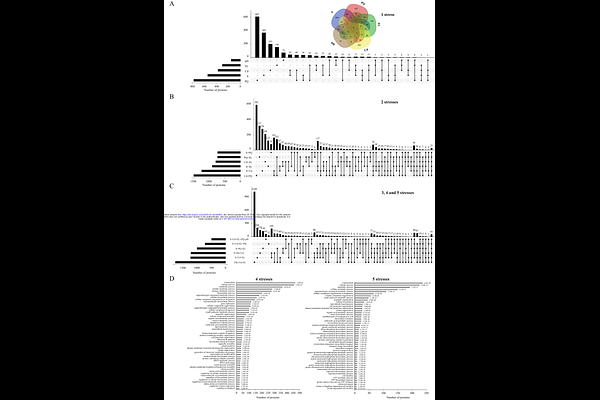Enhanced cell aggregation in the Chlamydomonas reinhardtii rbo1 mutant in response to multifactorial stress combination

Enhanced cell aggregation in the Chlamydomonas reinhardtii rbo1 mutant in response to multifactorial stress combination
Pascual, L. S.; Mohanty, D.; Sinha, R.; Nguyen, T. T.; Rowland, L.; Lyu, Z.; Joshi, T.; Mooney, B. P.; Gomez-Cadenas, A.; Fritschi, F. B.; Zandalinas, S. I.; Mittler, R.
AbstractGlobal change factors associated with climate change and increased pollution are subjecting plants, microbes, and different ecosystems to conditions of multifactorial stress combination (MFSC). While recent studies centered on the effects of MFSC on different plants and ecosystems, much less is known about how these conditions impact unicellular organisms. Here, we report on the physiological and proteomic responses of wild type and respiratory burst oxidase homolog 1 (rbo1) mutant cells of Chlamydomonas reinhardtii to a MFSC of 5 different abiotic stresses. While several similarities were found between plant and C. reinhardtii responses to MFSC, our work revealed that MFSC induces aggregation in the unicellular organism C. reinhardtii. We further show that MFSC induced aggregation is enhanced in the rbo1 mutant and can be triggered by H2O2. As aggregation typically leads to reduced growth, respiration and/or photosynthesis, enhanced aggregation of unicellular organisms in different ecosystems subjected to MFSC could explain part of the negative impacts of MFSC on the services they provide. Our findings shed new light on the response of unicellular organisms to MFSC and suggest that one of the main drivers leading to multicellularity during evolution was early conditions of MFSC under an oxygenated environment.